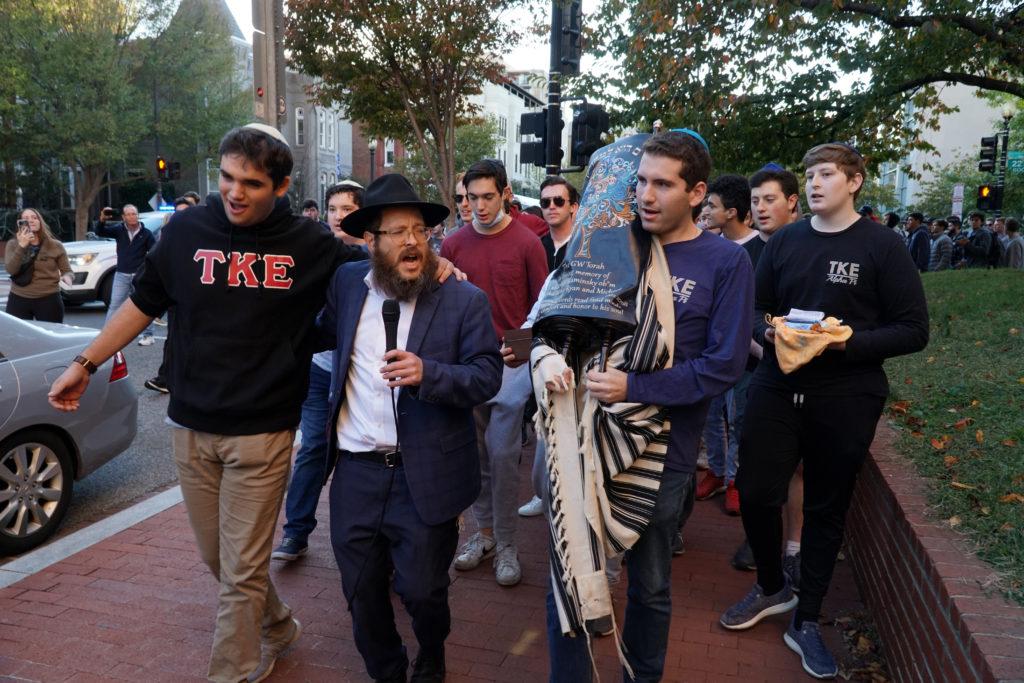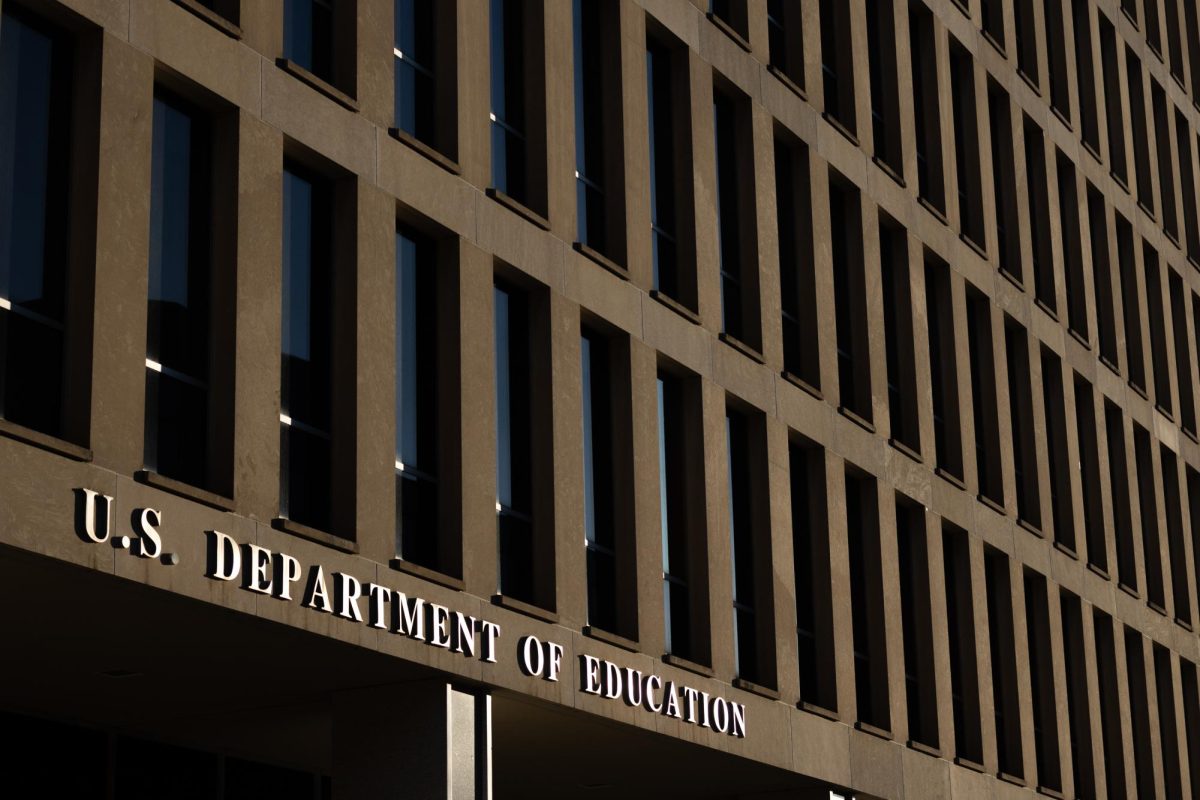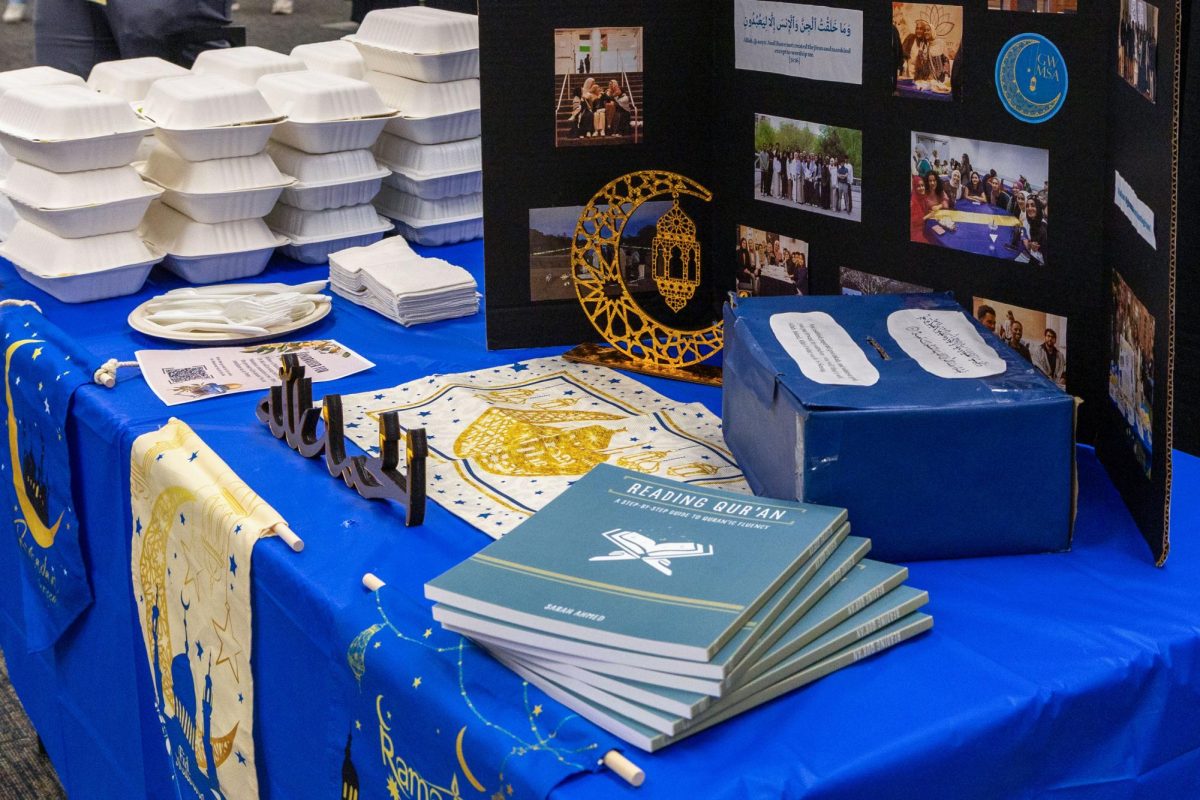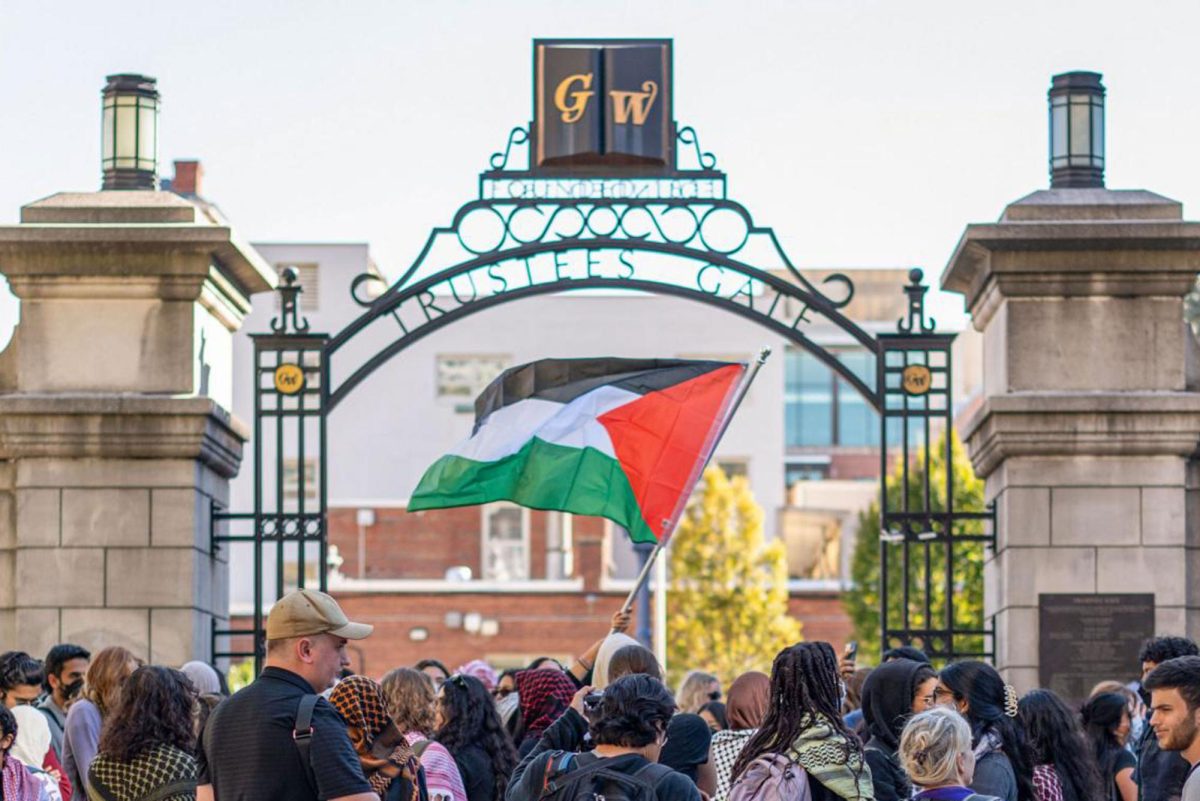Recent reported antisemitic acts on GW’s campus are part of a larger rise in antisemitism at colleges and universities nationwide, recent data from Jewish advocacy organizations show.
The University community has experienced a string of antisemitic incidents in the past three years, ranging from the desecration of a Torah scroll at the Tau Kappa Epsilon house last week to a Snapchat video of a student threatening to bomb Israel in 2019, both of which were met with swift condemnations from officials. Experts said the nationwide upward trend has been fueled by antisemites who have taken to online forums to connect more easily and diversity education programs that have overlooked antisemitism awareness efforts.
A Torah scroll was desecrated at the TKE house last weekend, prompting about 400 students to march through campus in support of the Jewish community and call on the University to take greater action in combatting antisemitism, with measures like more comprehensive education about the issue.
About 95 percent of more than 500 students and recent alumni who participated in a nationwide survey said antisemitism is a problem on their respective college campuses, according to a report by the Alumna for Campus Fairness – a Jewish advocacy organization.
We’ve compiled a timeline of antisemitic incidents that have occurred on campus within the past three years.
November 2019: Snapchat video filled with antisemitic speech shakes campus
In November 2019, a student posted a video on Snapchat, showing a female student, who said she was intoxicated at the time, calling Jewish people “pieces of shit” and threatening to bomb Israel. Officials obtained the video before it was then posted publicly on Facebook.

Nicholas Anastacio | Graphics Editor
An unfilmed individual was recorded in the video saying “What are we going to do to Israel?” to which the woman responded, “Bro, we’re going to fucking bomb Israel, bro. Fuck out of here, Jewish pieces of shit.”
University President Thomas LeBlanc condemned the video in a statement a day after it was publicly posted, saying the comments made in the video were “disturbing and hateful.” He said the University would not tolerate antisemitism or any form of bigotry on campus.
A week after the Snapchat video was posted publicly, about 100 students and SA members gathered in Funger Hall to share personal stories about their experiences with antisemitism on campus with administrators. Students at the forum called on officials to share more information about how they planned to take disciplinary action against individuals involved in the video.
February 2020: Mitchell Hall hall door vandalized with antisemitic drawing
In February of last year, Zev Siegfeld, the then-president of GW Young Americans for Liberty and a freshman representative for GW College Republicans, alleged that pictures of former President Donald Trump and former Vice President Mike Pence on his door in Mitchell Hall had been vandalized with a swastika and a mustache resembling that of Hitler and genitalia.
The SA’s Task Force on Fighting Anti-Semitism published a statement in February 2020 calling on officials to take “punitive action” against the perpetrators.
May 2021: Student alleges professor assigned paper involving antisemitic metaphor
A student alleged through a post on “Jewish on Campus,” an Instagram account that anonymously shares students’ stories of antisemitism on their college campuses, that a professor in a public speaking class assigned a paper about Adolf Hitler’s public speaking skills. The post states the professor required students to analyze an antisemitic metaphor Hitler used to describe Jewish people as a cancer or infestation that must be terminated.
Officials said the Office for Diversity, Equity and Community Engagement was “looking into” the incident, and students who were impacted could reach out to the office via email or its bias incident reporting website.
November 2021: Mezuzah stolen and returned damaged in Shenkman Hall
Last week, a resident of Shenkman Hall said a mezuzah – a small scroll of parchment placed on a doorpost with two biblical passages traditionally inscribed – was stolen from her door before it was returned damaged two days later. The incident came less than a day after the Torah was desecrated at the TKE house.
Sophomore Emma Reese, who owns the mezuzah, said the item was taken and returned with a wire unwrapped and rewrapped and had beads torn off.
November 2021: Email threatens Jewish population with antisemitic speech
Rabbi Yudi Steiner, the executive director at Rohr Chabad Center, said he received an email last Monday calling the TKE house vandalism a “Act of Resistance Against The Oppressor,” comparing Jewish people to Nazis and stating that they “must have a death wish.” Steiner said he posted the email and his response on social media to show Jewish students there was nothing to be afraid of and that GW is still a loving place for Jewish people even though a singular person was hateful.
The email reached about 12,000 people on Instagram. He said he forwarded the email to the GW Police Department and will continue to reinforce that the Jewish community should not be intimidated by hate.
”I want to show students, and I want to show Jewish people who are paying attention that the whole idea of someone who is attacking is the concept of terrorism, is to strike terror,” he said. “But if you’re not terrorized, then the terrorists don’t win.”
Educational gaps, online hate speech have spurred antisemitism, experts say
Experts in Jewish history said officials should address factors influencing the uptick in cases of antisemitism on college campuses, including a lack of education and a trend in antisemitic discourse on social media, to reverse the growing rise.
Jonathan Sarna, the director of the Schusterman Center for Israel Studies and a professor of American Jewish history at Brandeis University, said officials across higher education need to clarify their opposition to hate speech and antisemitism, which are “antithetical” to everything they stand for. He said universities should respond to antisemitic events with statements from top administrators, increased education and strict punishments against perpetrators of hateful acts.
He said antisemitism will also inevitably lead to other forms of hatred on campus against other minority groups. He said antisemitic groups’ website platforms show that other forms of hatred are often “intersectional,” meaning that multiple forms of hatred can often come together, like antisemitism and misogyny.
“If the perpetrators are found, they have to be severely punished as an example, and there are no excuses that can be accepted,” he said. “This is intolerable behavior. Obviously, efforts need to be made to find the perpetrators or the insiders or outsiders.”
Jeffrey Herf, a professor of history at the University of Maryland who specializes in twentieth century Germany, said university offices of diversity and inclusion across the country are a “huge problem” because their education tends to focus less on antisemitism and more on other forms of hate on campus, like racism. He said education on antisemitism must increase to stop the issue on campuses nationwide.
“The understanding of antisemitism on American campuses leaves a lot to be desired,” he said.








